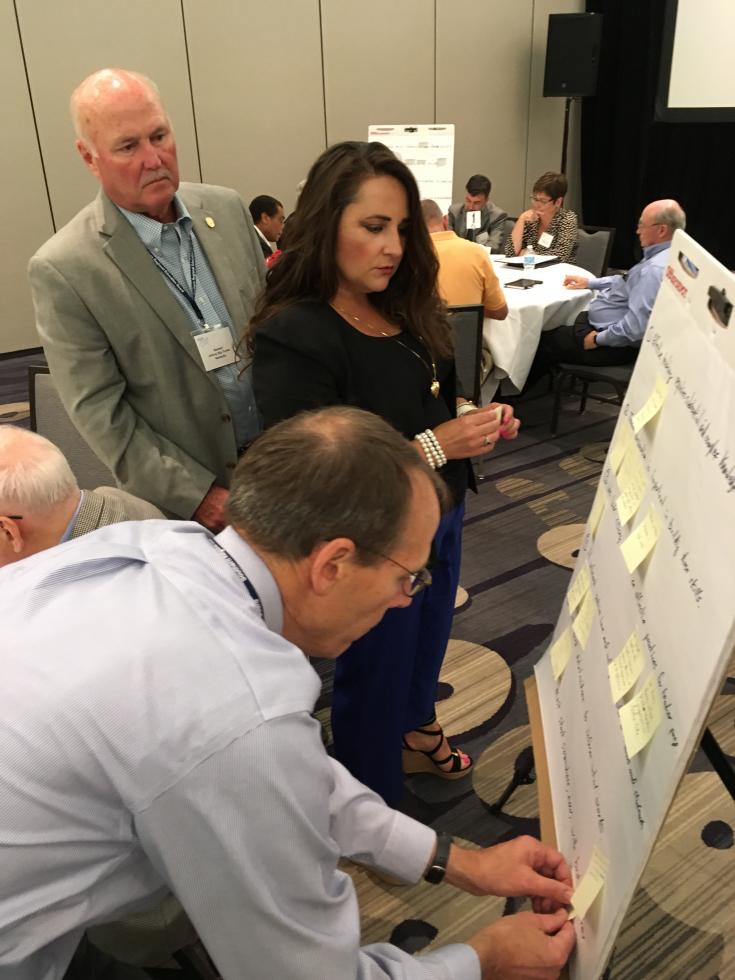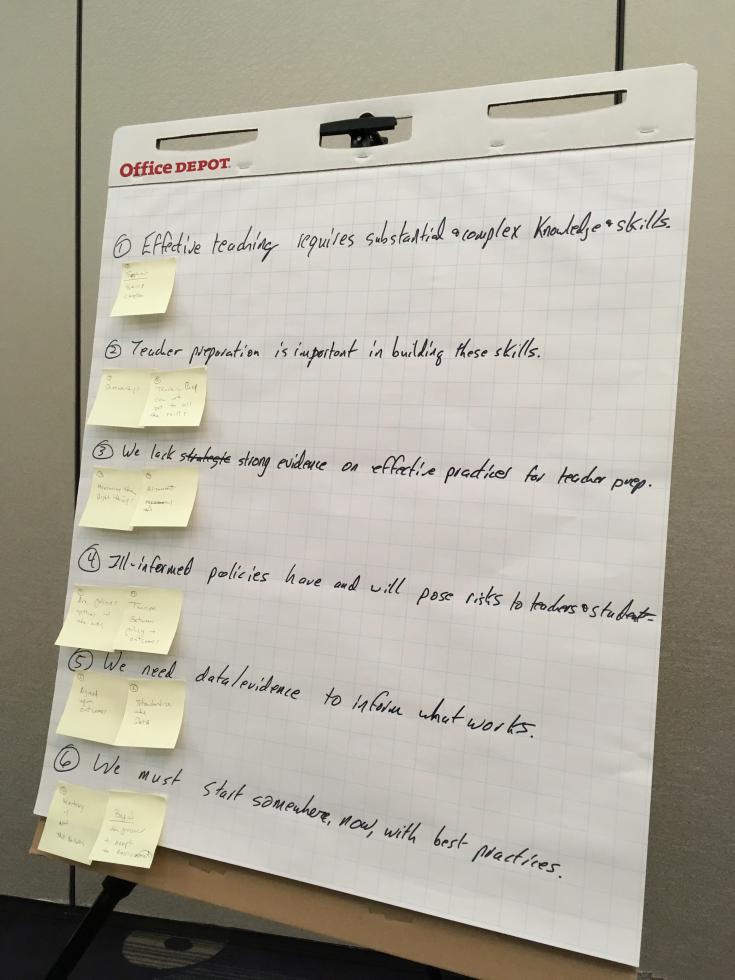No Easy Answers
Teacher Prep Commission Studies Difficult Issues
State legislators — many of them former teachers, principals or education professors — came together in June 2016 to begin work on one of education’s most challenging issues: recommending policies to improve the programs that prepare classroom teachers.
The commission’s charge is a difficult one, said SREB President Dave Spence, but it has never been more important. The job of teaching is harder than ever, he said. “We expect 80 percent of students to go on to college now, and yet the population is much more diverse and increasingly low-income.”
Expert speakers and facilitators helped Commission members articulate some of the tensions that frame the difficulty of improving teacher preparation.
Waiting for airtight evidence vs. the need to act now.
We have some evidence of whether and why reforms work, said University of Virginia professor Jim Wyckoff, but not enough. And without proof, universities may be reticent to risk investing in change, said Scott Ridley, dean of the college of education at Texas Tech University. Wyckoff pointed to a middle ground — expanding promising practices to more places while collecting stronger data on them.
The need to raise the rigor of prep programs vs. shortages of teachers.
“We need better-prepared teachers, but we also have big teacher shortages in some communities and disciplines,” said Spence. As programs get more difficult, universities may lose students at first, Ridley said, making it harder to stay the course.
The need to standardize teacher-prep curricula and assessments vs. the inherently local nature of governance, supply and demand for teachers.
The role of the state, Wyckoff said, is to set teacher certification and licensure requirements and to hold college teacher prep programs accountable for their graduates’ knowledge and outcomes. How the programs accomplish that will vary from place to place. Ridley’s US PREP program, for example, focuses on partnerships that pair teaching colleges with nearby school districts.
Commission members also debated the role of school culture in attracting, training and retaining effective teachers and the need to further professionalize the profession.
The Commission meets next in Atlanta in December.



